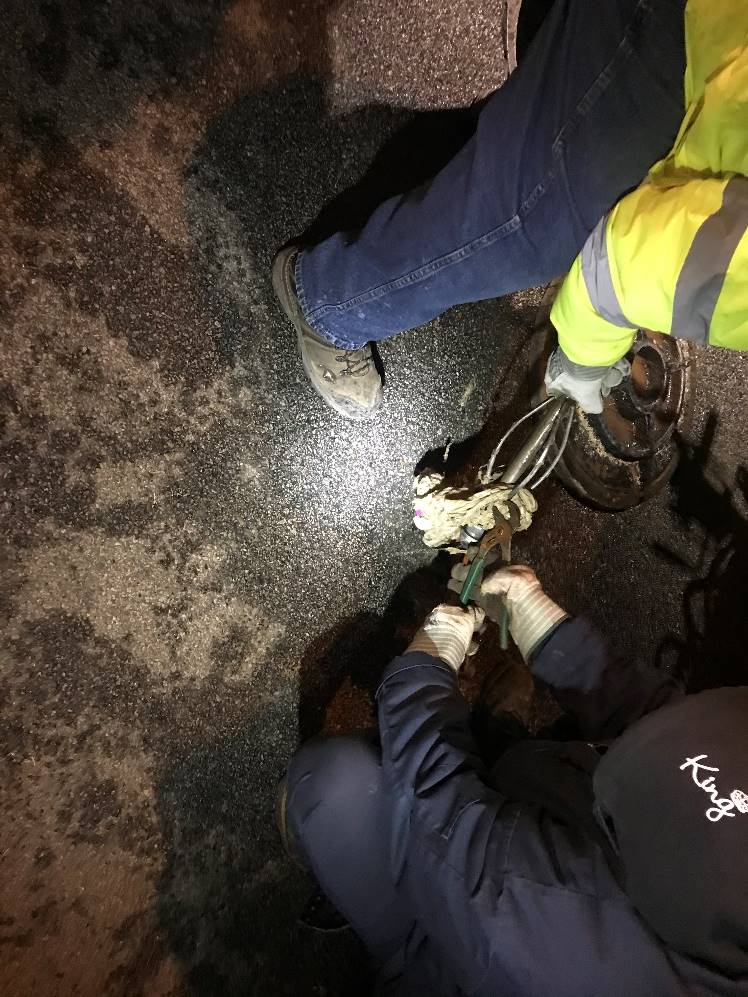DEM AGAIN REMINDS RHODE ISLANDERS TO DISPOSE OF DISINFECTANT WIPES IN THE TRASH TO HELP AVOID SEWER BACKUPS

Recent incident in Johnston Clogged the Pocasset Street Sewer Line
IT IS A TOILET NOT A TRASH CAN.
PROVIDENCE – The Department of Environmental Management (DEM) is reminding all Rhode Islanders to refrain from flushing disinfectant wipes – including those labeled “flushable” – and instead, to dispose of them in the trash. Last week, the Johnston Sewer Department alerted DEM that the main sewer line on Pocasset Street was clogged with a massive ball of wipes and sanitary products that had been flushed down the toilet. More than 30 families live on Pocasset Street and were affected by the blockage, which took maintenance staff more than a half-hour to clear. In addition to clogging the sewer pipes, flushing the wipes also caused 1,125 gallons of sewage to overflow into the Pocasset River. Other local communities have also raised concerns recently about wipes causing clogs in sewage systems.
Whether your home or business is connected to the public sewer system or has an onsite wastewater treatment system, you should never flush any type of wipes, including baby wipes and those labeled flushable, down the toilet. Instead, you should place these products in the trash for proper disposal.
In addition to causing clogs and wastewater collection system overflows, flushing wipes can also lead to sewer back-ups in basements and damage communities’ aging wastewater treatment equipment. Although some of these products may be labeled as flushable, wipes are designed and manufactured for strength and durability and do not easily break down in sewer lines and pumping stations as toilet paper does.
“As we are seeing in Johnston, wipes can clog our sewer systems and cause pump station failures,” said Matthew Puglia, a senior engineer in DEM’s Office of Water Resources – Wastewater Treatment Facility Operations and Maintenance program. “Globally, nationally, and here in Rhode Island, our wastewater treatment facilities are being affected by the disposal of wipes into sewage systems. We can all do our part and help avoid sewer overflows by disposing of these wipes in the trash rather than flushing them away.”
For more information about items that should not be flushed, visit the Water Environment Federation website at
https://www.wef.org/resources/for-the-public/public-information/fact-sheets/
and click on “It’s a Toilet, Not a Trash Can!” in the left-hand menu.
For more information on DEM programs and initiatives, visit www.dem.ri.gov. Follow us on Facebook at www.facebook.com/RhodeIslandDEM or on Twitter (@RhodeIslandDEM) for timely updates.
